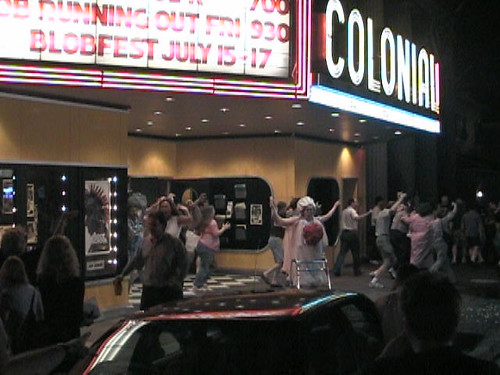Today’s article is a guest post by Kirsten Simmons, host of The Interactive Novel. Thanks, Kirsten!
“The first professional writing job I ever had, after seventeen years of trying, was on a movie called King Kong Lives. I and my partner-at-the-time, Ron Shusett, hammered out the screenplay for Dino De Laurentiis. We were certain it was going to be a blockbuster. We invited everyone we knew to the premiere; we even rented out the joint next door for a post-triumph blowout.Nobody showed. There was only one guy in line beside our guests, and he was muttering something about spare change. In the theater, our friends endured the movie in mute stupefaction. When the lights came up, they fled like cockroaches into the night.”
~Steven Pressfield, Do The Work
The movie, as Pressfield goes on to describe, was an unqualified disaster. It was roundly panned by the critics and barely registered on the gross lists.
What The…?
How did something which had such promise in the eyes of the authors go so totally wrong?
I’ve never spoken with Pressfield, so I can only guess at the reasons behind the tanking of King Kong Lives. But if I were to guess, I’d say it has something to do with community.
We tend to believe that writers work in seclusion. Think of the stereotypical writer pounding away at the keyboard all by his lonesome. This is especially true when there’s money attached to the work. The people paying us don’t want too many people to know the story, after all, otherwise who would buy it down the road?
But this brings up some problems, because the worst person to judge a piece of writing is the author. We’re far to close to our work. When I’m trying to edit anything I’ve written, I either think it’s brilliant or I see flaws that don’t exist. In my earliest writing days, I ruined dozens of perfectly good stories by tearing them apart to fix perceived flaws in the ideas. (My mechanics, on the other hand, were rarely the target of my edits, despite needing a fair amount of help.)
Fixing The Problem
What’s changed since then? I found a community.
All writers need people they can turn to for additional opinions when they run into problems. Outside eyes can offer a fresh perspective and are much more likely to identify the problems in our work. Communities like this one are essential to achieving a finely tuned, structurally sound story.
When you find your community, love them and hold them tight. Thank them profusely for their input (even if it’s not what you want to hear) and offer at least as many insights as you receive. Every amazing writer has a strong community behind them. We are nothing without our people.
Kirsten is a student, entrepreneur and author taking the idea of community to a whole new level. The Interactive Novel, about a girl who disappears without human touch, is evolving entirely in public with audience feedback. Come check it out!

